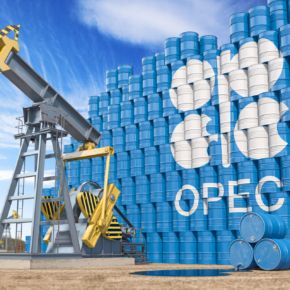
Posted on: 06. 15. 21
If you’ve been around the oil and gas industry for even a brief amount of time, the chances are, you’ve heard the term OPEC thrown around from time to time.
From local facilities to national oil companies, OPEC is an entity that we are all too familiar with. However, not all people who want to be in the know of our industry truly understand what OPEC is, its history with our nation, and how it impacts us.
Here are five of the biggest facts to know about OPEC as you start to delve deeper into the literal wells of the industry.
1. OPEC has Multiple Goals
Although there are multiple goals in play, the primary goal of OPEC is to unify the oil-producing countries in its organization and create a stable oil economy that positively affects the oil and gas industry at an international level.
The organization’s official mission states that it aims to secure an economic, efficient, regular supply of petroleum to consumers, a steady income to producers, and a fair return on capital for those investing in the petroleum industry.
2. OPEC Controls a Majority of Crude Reserves
Not only do the members of OPEC supply the world with over 40 percent of its oil, but the nations involved with the organization literally control over 80 percent of the world’s proven crude reserves.
3. Several Powerhouse Oil Countries Are Involved with OPEC
The United States is not a member of OPEC but regularly negotiates oil prices with OPEC and the nations within the organization. These nations include:
- Algeria
- Angola
- Congo
- Equatorial Guinea
- Gabon
- Iran
- Iraq
- Kuwait
- Libya
- Nigeria
- Saudi Arabia
- United Arab Emirates
- Venezuela
4. Despite OPEC, U.S. Still Leads in Oil Production
Although OPEC members own a vast majority of the world’s oil reserves, our nation and the facilities we operate still prove that bigger isn’t always better.
As of 2019, the United States is considered the world’s largest oil producer. Our reserves both onshore and offshore produce nearly 19.5 million barrels per day.
5. OPEC Doesn’t Control U.S. Gas Prices
While it may seem like OPEC has an unwavering grip over the global economy, it does not directly impact the gas prices we see at local pumps. Yes, OPEC has the ability to drive oil prices by reducing its output to outside nations.
However, our mass production of oil helps to keep their power in check. So, when output drops, national production increases, which helps even out any oil deficits and leaves gas prices at as reasonable a level as possible.
Want to Stay Locally Up-To-Date? Pro-Gas, LLC can Help
Although the United States isn’t a member of the Organization of the Petroleum Exporting Countries (OPEC), the team at Pro-Gas, LLC still recognizes the impact that this massive organization has on our international industry.
While OPEC may have a monopoly over a large portion of natural reserves, the US is proud to expand that production we locally source. Through the sale of our premiere oil and gas products, we keep our national industry thriving despite any international shifts in prices.
Contact us today to learn more about our services and product availability.


